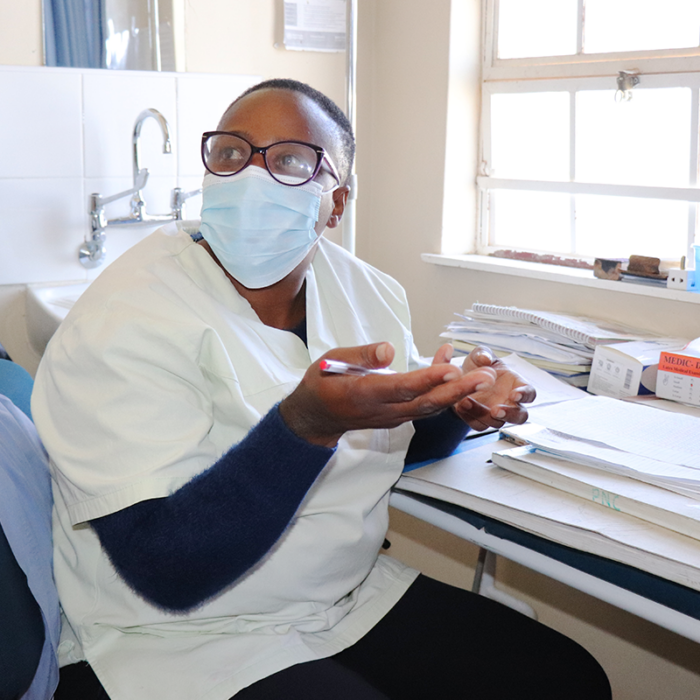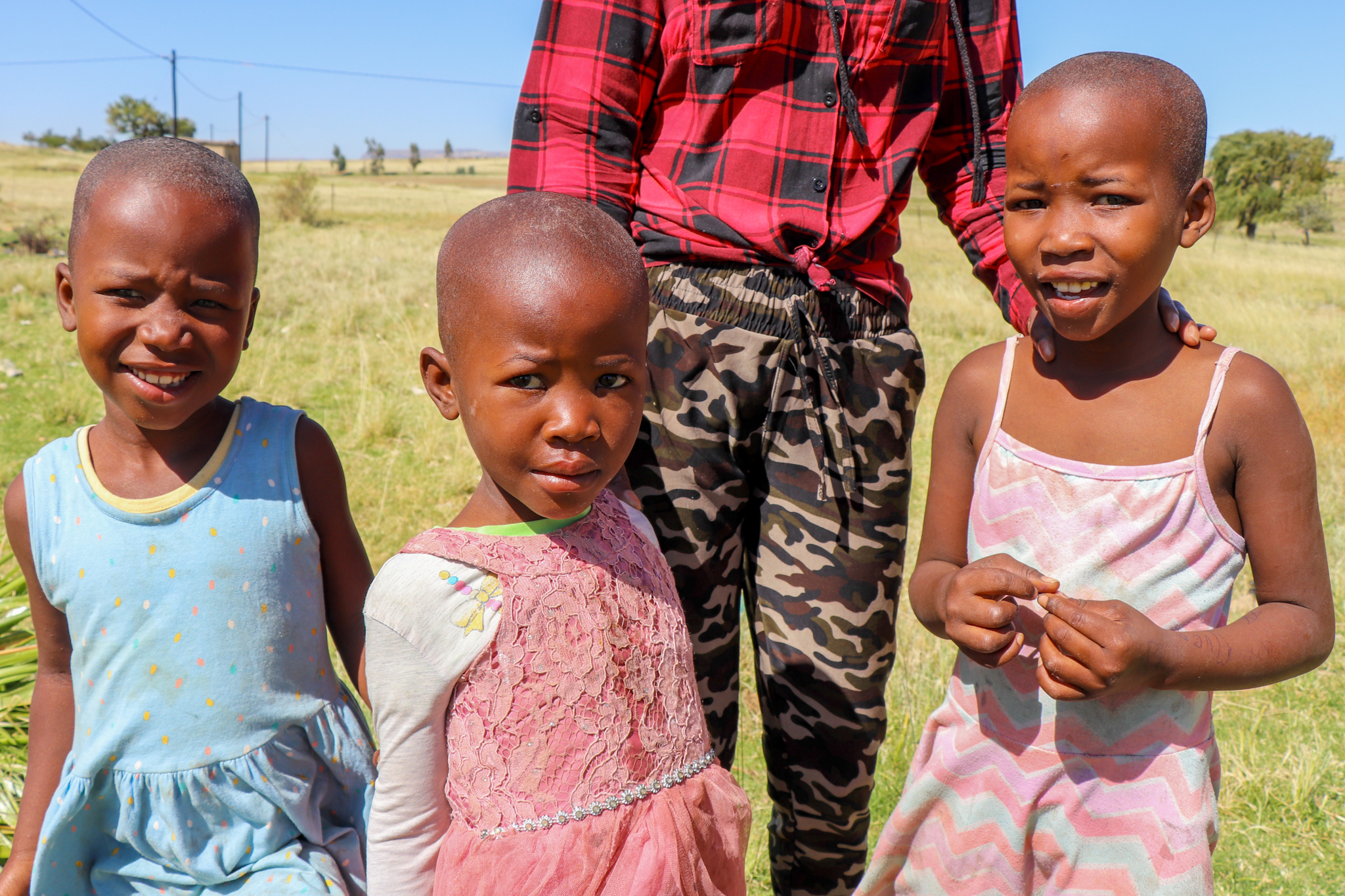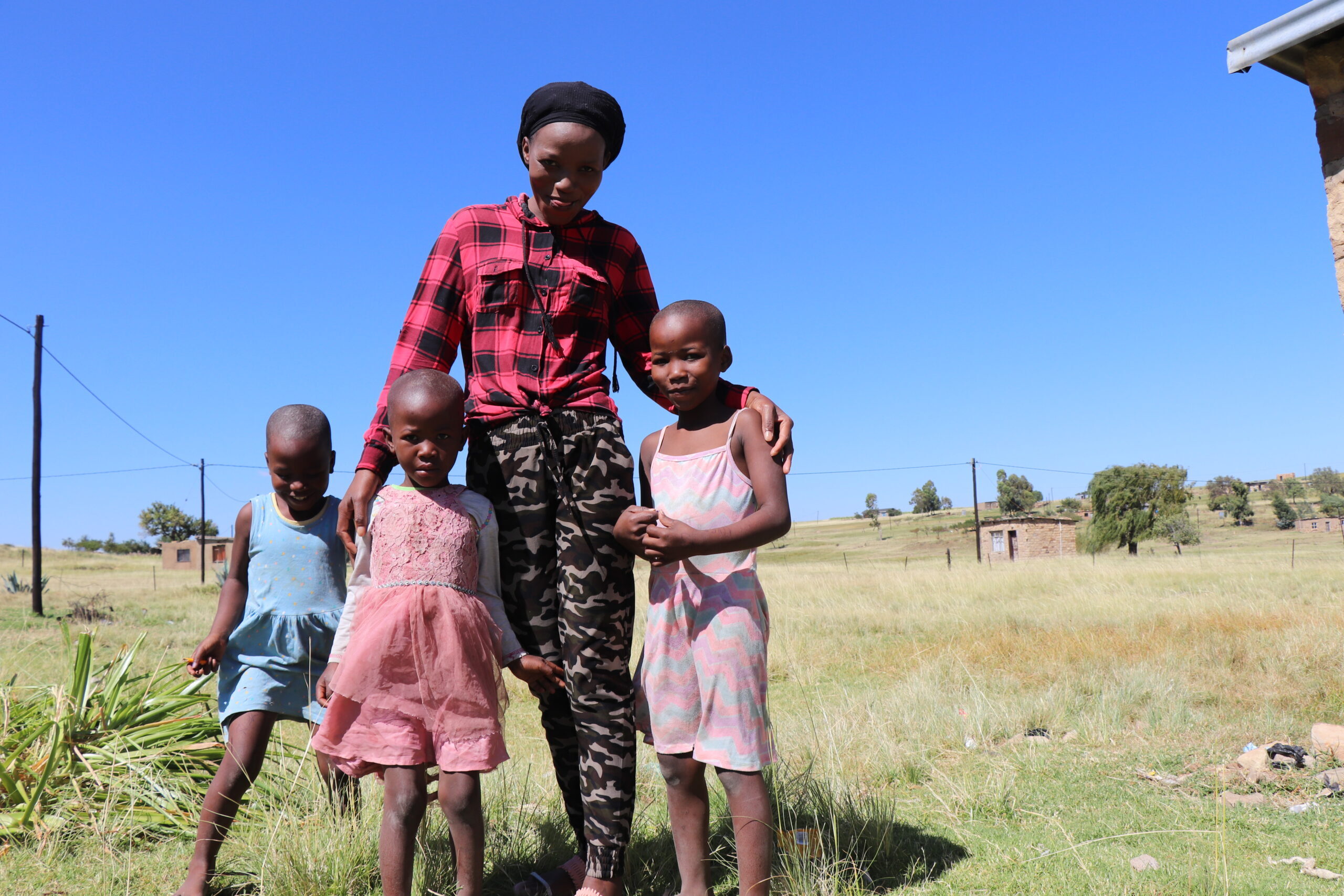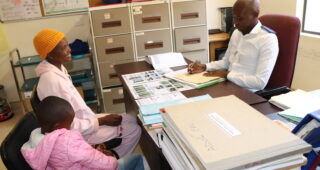A Family of Survivors
The sun beats down on Mampe, a street vendor in Motloi, a village in the drought-hit district of Mafeteng in southern Lesotho. With three daughters to provide for, the 27-year-old single mother is out most days selling wares in the community to provide for them. Fortunately, Mampe’s bubbly girls provide her with joy at the end of a long day.
Four years ago, Mampe’s partner left her and the children to fend for themselves, which put the family in a food insecure situation—and at high risk of acquiring tuberculosis (TB).
Poor nutrition and inadequate diet weaken the immune system and increase the chances of infection and developing active TB. Overcrowding and poor ventilation at home or in work environments also make TB transmission more likely. For these reasons, poverty is linked to TB.

Contracting TB Away From Home

Last year, Mampe ventured to Maseru, Lesotho’s capital, looking for means to support her children. While she was there, Mampe became seriously sick and was admitted to Queen Mamohato Referral Hospital. She was tested for both HIV and TB and was found co-infected with both diseases.
“At that time, I was bedridden, and I was told that my lungs are covered by water and experienced difficult breathing,” says Mampe. When she was well enough to travel, Mampe was released from hospital and returned to her village and her children.
What About the Children?

After some time back home, Mampe visited the nearby Samaria Health Center for a check-up and treatment refill. She was asked if she had children. The health workers were interested in contact tracing, to see if Mampe’s daughters had possibly also been infected.
X-ray services are free in all Lesotho public facilities, so the girls were referred to the district hospital in Mafeteng to be checked.
“The X-ray results showed that all three children were infected and had active TB,” says Sister Maphakiso Maqeba, the Samaria nurse-in-charge. “The youngest had lost weight, was no longer playful, and had a cough. The two older children appeared fine and were still attending school—but they also had active TB.”
Meanwhile, Mampe became seriously ill, with her lungs filled once again with fluid, and she was admitted to Mafeteng hospital. The children were released with anti-TB medication so that they could recuperate at home.
A Nurse Reaches Out
“This was a devastating situation, especially because it involves children,” says Sister Maqeba.
She says that clinic staff was hesitant to send the children home alone, without a parent to feed them and observe them take their TB medication.
“It was under this touching circumstance that I took upon myself to consult a social worker and the Child and Gender Protection Unit of the local police for advice to ensure the best interest of the children,” she says.
“I even asked the social worker if the children could be placed in a foster home until the release of their mother. However, I was advised that it [would be better to] consult one of the family members to help. I had to return with the children to the village and consult the chief of the area, who is related to Mampe, and she accepted to take care of the children.”

TB-Free!

Today, after careful adherence to treatment, Mampe and her daughters have been reunited and declared TB-free. Mampe looks back on their ordeal with both sadness and gratitude.
“My children were emotionally affected,” she says.
“[They] got TB disease from me because they were taking care of me when I was sick. They were always sitting close to me when I was bedridden.”
But she adds that she is touched that the community cared so much for her girls: “I thank the nurses from Samaria clinic for going out of their way to donate food and clothing for my family. [And] I was also given soya and Plumpy’nut nutritional supplements to speed up our recovery. The nurses called me to check on us regularly to hear how I was doing with the children.”
Mampe also thanked her grandmother, the chief, for helping her take care of her children and give them the TB treatment while she was in the hospital.
Yes, We Can End TB!

As Mampe’s situation shows, the TB diagnosis, treatment, and cure in a low-income setting can be challenging. The community needs strong political leadership and a commitment in reducing catastrophic costs. The best outcomes require several sectors of the community to contribute resources: social development agencies; the business community; and technical experts, such as the Elizabeth Glaser Pediatric AIDS Foundation (EGPAF) all have a role.
Long term efforts to end poverty, food insecurity, and malnutrition—as outlined in the first three UN Sustainable Development Goals—also play a huge role in ending TB.
The good outcome with Mampe and her family reflects the most vital factor: a client who understands the importance of treatment and is willing to adhere until they are healthy.
Makopano Letsatsi
Lesotho
Tuberculosis



